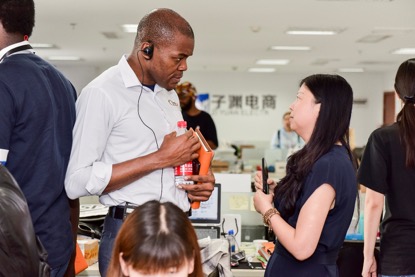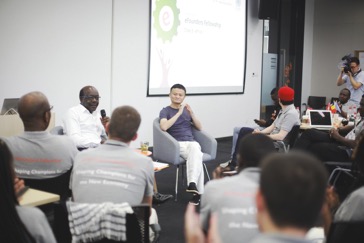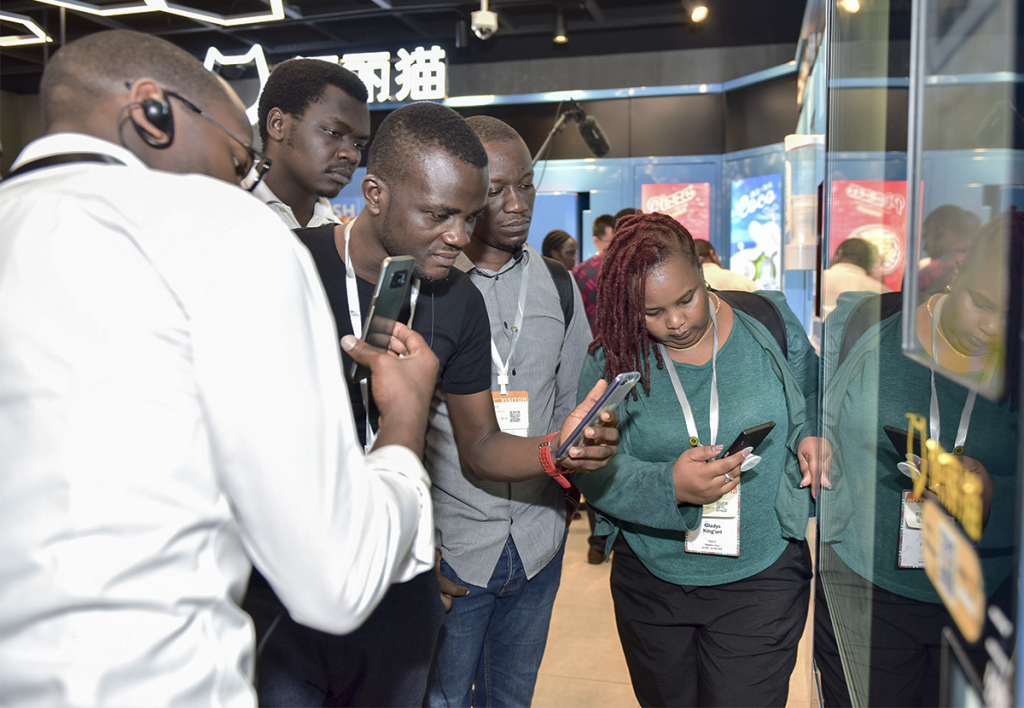
Alibaba Business School and the United Nations Conference on Trade and Development (UNCTAD) have joined hands again to promote global youth entrepreneurship by hosting 29 Africa-based business owners at Alibaba’s Hangzhou headquarters.
Hailing from 11 African countries, these entrepreneurs of the “eFounders Fellowship” program were selected through a multi-stage process. They represent myriad industries, from logistics, e-commerce and fintech, to big data and tourism in Africa.The program’s goal was to let participants experience firsthand the transformative impact e-commerce has had on China in the past decade.
Fits with Alibaba’s Vision, UNCTAD’s Mission
The 11-day immersion program in June, co-spearheaded by Alibaba and UNCTAD is a sweet spot for Alibaba, whose mission is to make it easy to do business anywhere. It’s also in line with the UN Sustainable Development Goal that no one is left behind in the digital economy. The program also underscores Alibaba Group founder Jack Ma’s personal commitment to fostering entrepreneurship among youth from all around the world. As a special advisor to UNCTAD, Ma has pledged to empower 1,000 entrepreneurs from developing countries in five years, including 200 from Africa.

Speaking to the eFounders fellows, Ma drove home the point of inclusion and building a business that enables others to advance as the key to sustainable success. Recalling his own start-up days with 18 other founders almost two decades ago, Ma said though competition was fierce and hardly anyone believed in his vision of bringing e-commerce to China, “we never ever gave up and we stayed humble.”
“You have to get used to rejections. Why should people help you? You have to believe in yourself and believe what you are doing will be successful in 10 years,” he told the class, emphasizing that, as a leader, integrity and honest must be the guiding principles, because trust is the foundation of any relationship.
Jack Ma Optimistic About Africa’s Future
Ma also shared his optimism in the future of Africa, saying the continent is better prepared to embrace e-commerce and new technology than China was 19 years ago, when Alibaba was founded.

“Africa needs more entrepreneurs, because you can find the opportunities and turn them into reality‚ĶYou are the hope of building a digital e-commerce for Africa,” he said.
A major purpose of the eFounders Fellowship Program, said UNCTAD Secretary General Mukhisa Kituyi, is to build up a constituency and network of like-minded entrepreneurs who can become game-changers and future policy-shapers for Africa. Through their collective power, these entrepreneurs can create a strong and long-lasting digital marketplace in Africa.
“Governments do not create enterprises. It is the entrepreneurs who do. So, while governments have a role to create an enabling environment in the rules and regulations, infrastructure, skilled development programs, it is [the] young‚Ķentrepreneurs who create the opportunities, the livelihoods, the examples that others have to follow,” he said.
During the course, participants attended lectures given by Alibaba executives and local entrepreneurs. They also had several onsite experiences, including a visit to a service station under Rural Taobao, an Alibaba rural initiative, the Cainiao smart logistic warehouse, and Hema (also known as Freshippo), an AI-powered supermarket that uses technology to give shoppers a seamless experience both online and offline.
Creating a Collaborative Environment
One participant, Andreas Koumato, 26, from Chad said the most-valuable lesson from the eFounders Fellowship program is the importance of creating an inclusive and collaborative environment where all parties involved can benefit from the relationship.

“My experience here has shifted my thinking. Before, we were focused on pleasing the investors, but now I see the importance of putting our customers first, then my employees, then the investors,” said the founder of Mossosouk, an e-commerce platform. “Let others [benefit], then later, we will gain.”
Nancy Amunga, 27, the founder of Kenyan logistics company, Dana Communications, said the eFounders Fellowship and UNCATD are important in nurturing African entrepreneurs, “because they teach you about business and setting goals.”
“For the last nine days, I have been super inspired. I have seen what I have never seen, but above all, I’ve seen very humble people. They’ve built an empire, but yet they are humble,” she said. “My biggest takeaway: Go home, smile a lot, make this world a better place, not just for you, but for the next generation.”
This is the third time that the eFounders Program has been offered. So far, 52 fellows from Africa and 37 from Southeast Asia and Pakistan have completed the program since the inaugural class in November last year.
Many graduates have made transformative shifts in their businesses and have become catalysts for digital transformation in their home countries. Some have raised rounds of investments, while others have started their own training program for entrepreneurs in their communities.
Jessica Anuna, 27, who founded a fashion e-commerce site in Nigeria said by leveraging the insights she gained from her eFounders Fellowship class, as well as advice from an Alibaba mentor, she was able to secure funding and a spot in an accelerator program, called TechStars, in Dubai.
B-roll Handout: 2018 eFounders Fellowship




